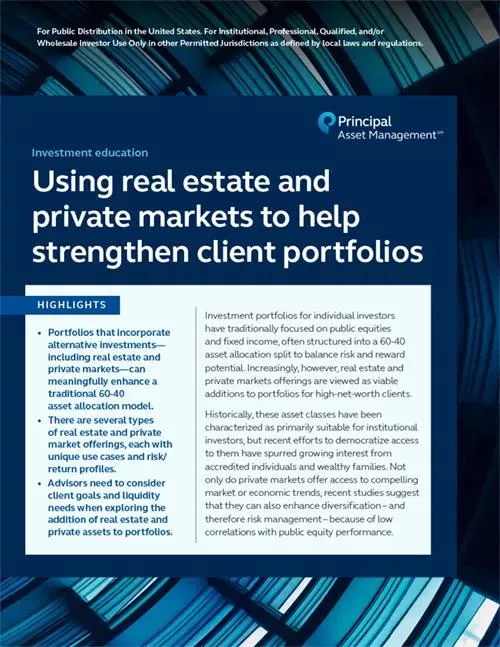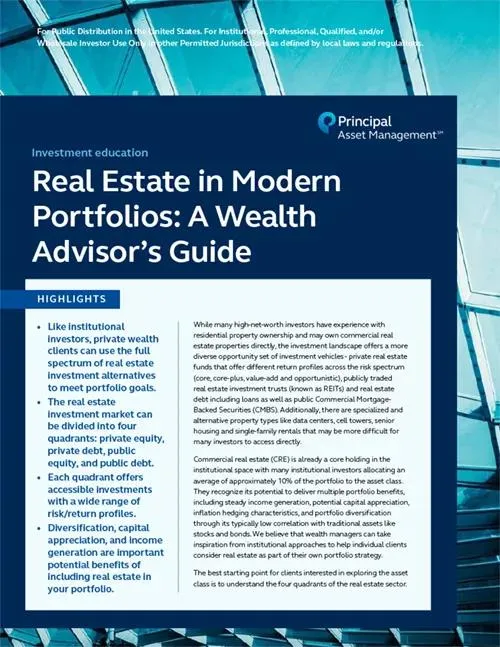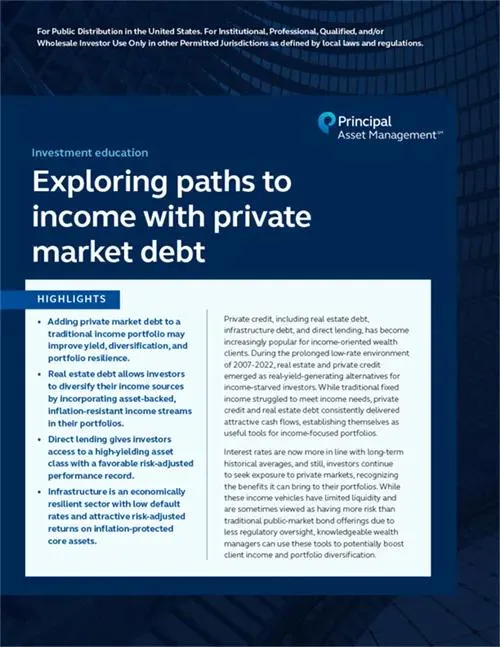Helping you to navigate the evolving landscape of real estate and private markets with confidence and clarity.
Confident portfolio design
Learn how to build stronger, more resilient portfolios by understanding where alternatives fit - and why they matter now.
Clarity across asset classes
From real estate to private credit and infrastructure, get to grips with the building blocks of alternatives and how to use them.
Stronger client conversations
Sharpen your language, framing, and tools - so you’re prepared to explain, position, and personalize alternatives with ease.

Alternative investments offer compelling opportunities to enhance traditional portfolios. Strategically integrating private markets and real estate can potentially lead to attractive long-term outcomes.

As these real estate and private market opportunities continue to democratize, prepare to educate clients and build portfolios that responsibly incorporate these investments.

Understand the pros and cons about the different ways to access alternative investments; we’ll debunk some common myths and share tips for how to discuss with your clients.

Leverage real estate investments in various ways for clients who want to enhance income, diversification, and capital appreciation.

Adding private market debt to a traditional income portfolio may improve yield, diversification, and portfolio resilience. We discuss the different product types, how they can be used in a portfolio, as well as considerations advisors should think about when determining allocations for clients’ portfolios.
Past performance does not guarantee future results.
Investing involves risk, including possible loss of principal. Asset allocation and diversification do not ensure a profit or protect against a loss. The risk management techniques discussed seek to mitigate or reduce risk but cannot remove it.
Real estate investment options are subject to risks associated with credit, liquidity, interest rate fluctuation, adverse general and local economic conditions, and decreases in real estate values and occupancy rates.
Private market investments, unlike publicly traded stocks, involve various risks due to illiquidity, lack of transparency, and higher minimum investment requirements. These risks include liquidity risk, market risk, capital risk, and regulatory risk. Additionally, private market investments often involve higher fees and expenses and may have longer investment horizons. Investment risk may be magnified with alternative investment strategies due to their use of arbitrage, leverage, and derivatives. Fixed‐income investment options are subject to interest rate risk, and their value will decline as interest rates rise.